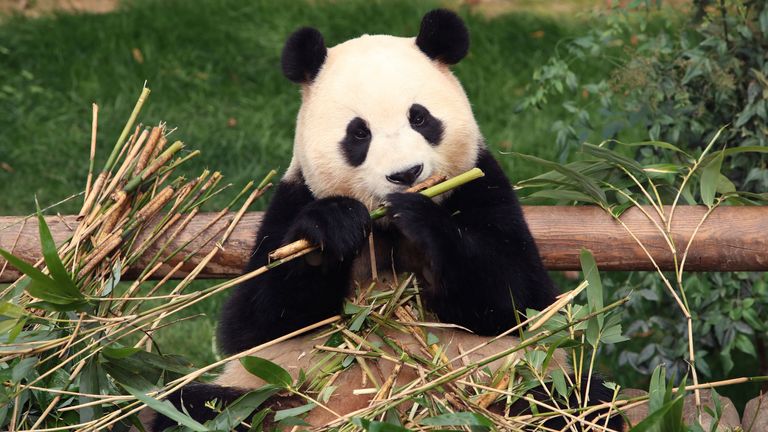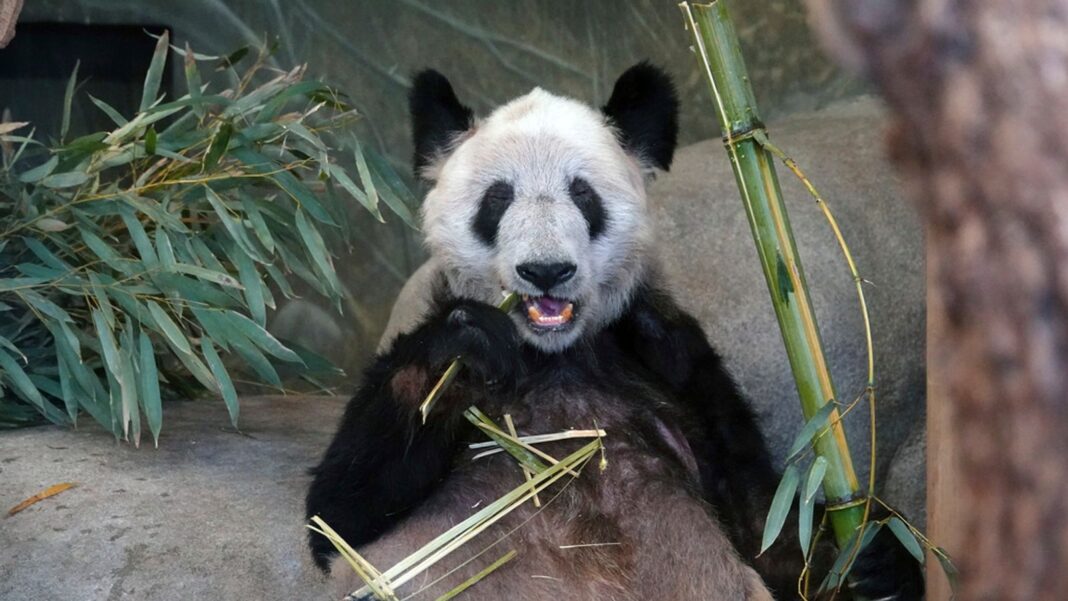Pandas are not good at reproducing, especially when they are held in captivity. Now, their poo may help scientists understand why.
Lots of animals struggle to mate in captivity. Cheetahs, polar bears, certain leopards and giant pandas all find it difficult to reproduce.
Pandas, however, have it particularly hard.
Females only ovulate once a year in spring and there’s a short, 40-hour window when they are fertile.
If they do get pregnant, they will usually give birth to two cubs but only one generally survives – and then stays with its mother for up to three years.
In captivity, pandas also get stressed by being stuck in confined spaces and males do not seem to like a lack of choice in mates.
When conservationists try to help out by artificially inseminating females, the mothers show less maternal behaviour than if they had conceived naturally.

Giant panda Fu Bao eats bamboo at Everland amusement park. File pic: AP
All this means that conservation efforts to save pandas are particularly hard. A team of scientists in Beijing suspected the diets of captive pandas may not be helping.
“In captivity, animals lack the freedom to choose optimal food,” said the Beijing Normal University team in their new study. This means they may be missing out on nutrients that are “essential for reproduction”.
Bamboo makes up the majority of their diet but they lack a gene that would help them digest it. That means they have to eat between 12-38 kilograms of bamboo every day to get enough nutrients and they rely on their gut bacteria to break it down.
Now, by studying 72 poo samples from 20 male giant pandas, the scientists have discovered males who had successfully reproduced had “significantly higher” levels of a gut bacteria called ‘clostridium’. The Beijing team thinks this could be impacting their fertility.
Read more from Sky News:
Frogs are screaming – we just can’t hear them
Animals reacted weirdly to the eclipse
NASA urged to help in fresh search for Loch Ness monster
In order to boost the levels of that bacteria, they have recommended that zookeepers and conservationists feed their pandas a more “wild” diet by increasing the amount of shoots and flavonoids the pandas eat.
Panda conservation has had recent success despite breeding problems. The species was recently downgraded from ‘endangered’ to ‘vulnerable’ after their population increased by 17% in a decade.
There are now 1,864 living in the wild, after efforts by the Chinese government, conservationists and scientists to protect their habitats and bring the species back from the brink.







